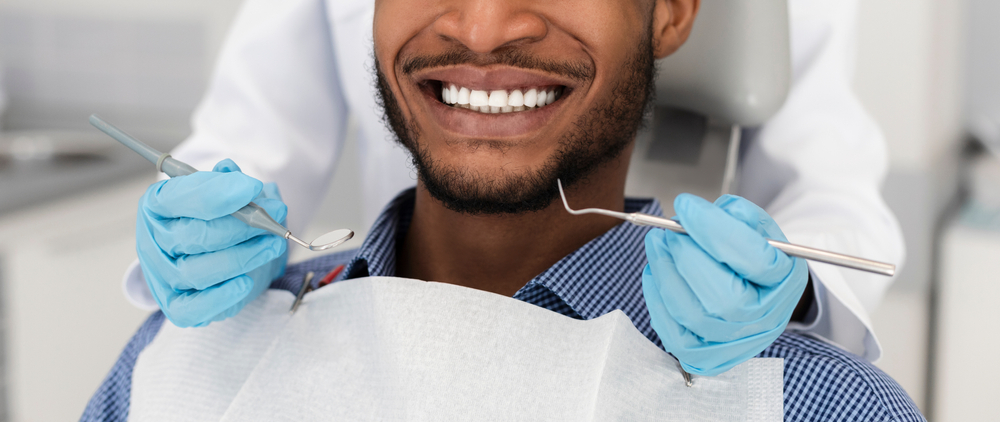Scaling and Root Planing

After receiving a periodontal disease diagnosis, it’s important to keep up with treatments designed to address the issue and manage your oral health. Treatments such as scaling and root planing are designed to help stop the progression of periodontal disease to safeguard your gums, teeth, and periodontal structures.
What Is Periodontal Disease?
Also called gum disease, periodontal disease is a bacterial infection of the gums. It develops when calculus accumulates on the surface of the teeth, pushing the gums away. This creates pockets between the gums and the teeth where harmful bacteria thrive.
Periodontal disease can cause a variety of local symptoms, such as:
- Swollen, painful, or red gums
- Gums that bleed easily
- Receding gums
- Tooth sensitivity
- Persistent bad breath
- Loose teeth
- Degeneration of the periodontal ligaments
- Tooth loss
- Degeneration of the jawbone
Periodontal disease can also harm a person’s overall health, as it has been connected to a whole host of systemic health issues such as:
- Cardiovascular disease
- Diabetes
- Respiratory infections
- Rheumatoid arthritis
- Dementia
- Certain types of cancer
- Reproductive health problems
To prevent the worst symptoms from occurring and to protect the general health of your body, careful treatment and ongoing management are necessary to keep the infection in check.
What Is Scaling and Root Planing?
There are several treatment approaches available for addressing periodontal disease. Scaling and root planing (also called dental deep cleaning) are among the most commonly used.
Although typically referred to and performed together, scaling and root planing are actually two distinct procedures.
- Scaling is the process of scraping the surfaces of the teeth (above and below the gum line) with special dental instruments to remove the buildup of calculus and plaque.
- Root planing is the process of smoothing the surfaces of the roots of the teeth. This eliminates many cracks and grooves where bacteria would thrive while thoroughly cleaning and sterilizing these deeper periodontal structures.
Is Scaling and Root Planing Effective?
Used together and in conjunction with additional efforts to sterilize and eliminate harmful bacteria, scaling and root planing are quite effective at completely cleaning the periodontium to aid in managing periodontal disease.
Is Scaling and Root Planing a Painful Procedure?
Since scaling and root planing procedures require a deeper cleaning of the structures below the gum line, we typically use local anesthetics to ensure you experience no pain or discomfort during your appointment.
What To Expect During a Scaling and Root Planing Appointment
Depending on the current condition of your gums and the depth of the gum pockets, scaling and root planing procedures may begin with the administration of local anesthetics to ensure the treatment area is fully numbed to prevent sensitivity and pain during the process.
During the scaling procedure, we use special dental instruments, such as an ultrasonic scaling tool, to remove calculus and plaque from the surface of the crowns and roots. During the scaling procedure, we might also irrigate the structures below the gums with an antimicrobial agent to help fight the bacterial infection.
During the root planing process, we smooth the contours of the roots, removing cementum and dentin from the root surfaces. This eliminates the harmful plaque, tartar, toxins, and microorganisms that might be embedded in these layers of the roots. After root planing, we may treat the area with antibiotics to ease pain and inflammation while helping the gum tissues to heal more quickly.
We then make sure you are scheduled for a follow-up appointment where we can examine and measure the pockets between the gums and the teeth to evaluate the healing progress and determine the next steps for treatment and periodontal disease management.
Scaling and Root Planing in Glen Ellyn, Illinois
At Glen Ellyn Dentistry, we offer a variety of approaches and treatments designed to address periodontal disease. To learn more or request an appointment, we welcome you to contact our office at 630-942-0727 today.


